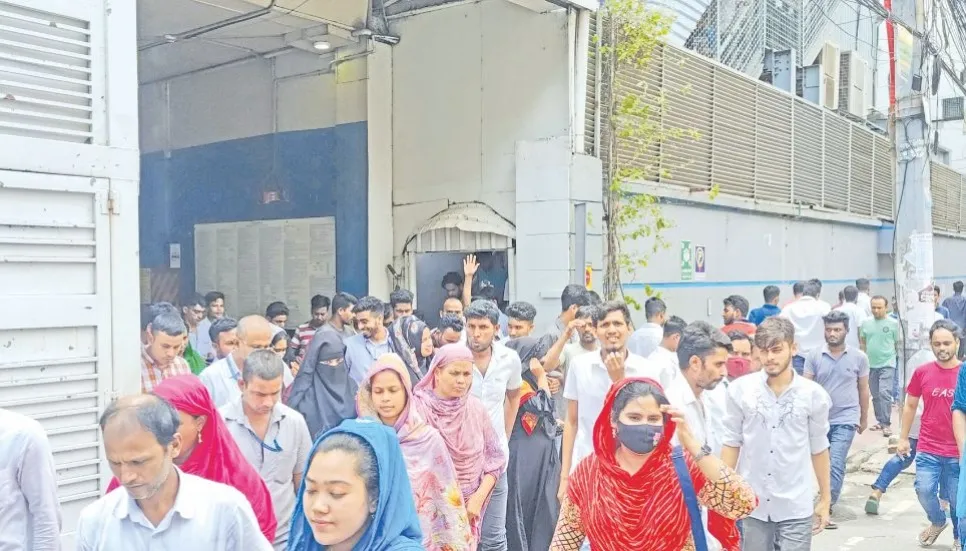
The readymade garment factories in the Ashulia area, on the outskirts of the capital Dhaka, have returned to normal after three and half weeks of workers’ unrest as the government and owners have agreed to meet all of their demands.
According to the Industrial Police and the Bangladesh Garment Manufacturers and Exporters Association (BGMEA), most of the closed factories reopened on Wednesday and workers returned to their duties peacefully.
No protest or demonstration occurred in the Ashulia and Savar areas during the day, even though law enforcement agencies were on high alert to tackle any unwanted situation.
Ten factories in Ashulia and Savar, however, closed on Wednesday, and of them, six suspended production in line with the ‘no work, no pay’ policy under Section 13/1 of the labour act.
Industry insiders expect the situation to return to fully normal by Saturday.
According to Ashulia Industrial Area Police-1 sources, most of these factories were closed due to various reasons including financial crisis, not due to protests.
Regarding the overall development, Bangladesh Garment Manufacturers and Exporters Association (BGMEA) President Khandaker Rafiqul Islam told The Business Post, “Workers have returned to their workplaces and this is obviously good news for all.”
“Ten factories are yet to restart production and we expect they will resume operation on Saturday. All parties, including workers, are helping us to create stability, and hopefully, the RMG sector will enter a new era to rebuild Bangladesh,” he said.
Unrest in the apparel sector started in the Ashulia area on August 31, when workers of Nassa Group left the factories and started demonstrating and vandalising property and vehicles. Since then, production has been off or partially off at most factories in this area.
The unrest later spread to many factories in Gazipur and other areas, where workers took to the streets with many demands including payment of dues and wage hikes.
The interim government led by Prof Muhammad Yunus, law enforcement agencies and owners had claimed that a vested group, including ousted prime minister Sheikh Hasina’s followers and those serving the interest of neighbouring India, were fuelling the unrest to create anarchy.
The government, however, did not use force against workers and followed a peaceful way to bring the situation under control, although workers vandalised many establishments.
On Tuesday, the labour and employment ministry managed to reach a peaceful agreement with workers and factory owners, where the owners agreed to meet the 18 demands put forward by workers, bringing an end to the instability within the industry.
The demands, which include increases to attendance bonuses, minimum wage implementation across all factories by October and improved working conditions, were accepted following extensive discussions.
Afterwards, owners decided to reopen factories as labour leaders pledged to return to work while the government and law enforcement agencies assured the factories’ security.
Khairul Mamun Mintu, legal affairs secretary of Bangladesh Garment and Sweater Workers Trade Union, said, “Garment factories reopened in the industrial areas today [Wednesday] and the workers have also joined the workplaces. Hopefully, a normal environment will return in the industrial area soon.”